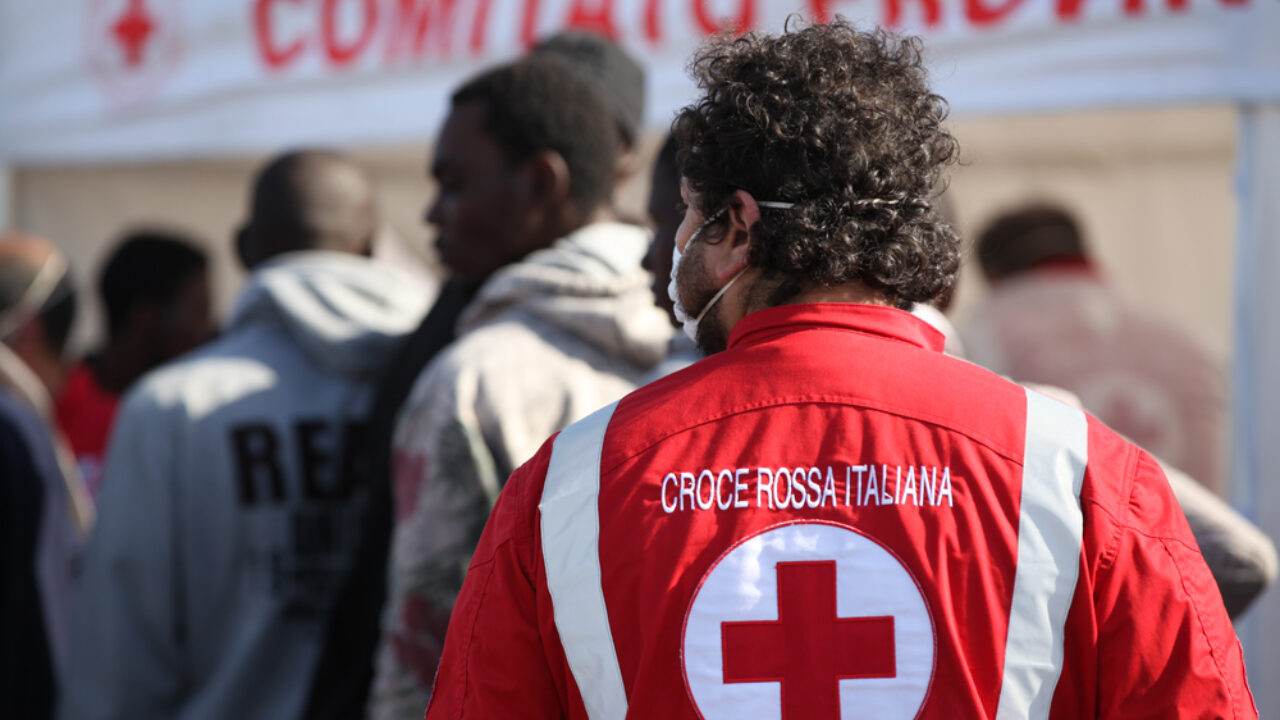Structured approach: How the EU can prepare itself for the next wave of migration
Migration is first and foremost a structural problem, yet the EU persists in responding to it as an emergency. Now is the time to change course
Migration slipped down the European Union’s agenda during the pandemic – but the issue has not gone away, as shown by recent tensions over migration between Morocco and Spain, and growing numbers of people making their way across the Mediterranean.
For Italy, its position at the very heart of the Mediterranean basin makes it one of the easiest and favoured arrival country for migrants, especially for those coming from Libya and Tunisia. Indeed, Italy is the primary European country of arrival for migrants, with Spain second. By early July this year, 20,854 migrants had disembarked on the Italian coast – a significant increase on the same period in 2020 (7,313 individuals) and 2019 (2,784 individuals). In Europe as a whole, a total of 55,400 migrants arrived, around 38,000 of whom reached Italy, Spain, Greece, Malta, and Cyprus by sea.
Migration is therefore an extremely sensitive topic in Italy, whoever is running the government. For this reason, it is not hard to understand why the country’s prime minister, Mario Draghi, pressed for migration to go on the agenda of the last European Council, held on 24-25 June. Draghi succeeded in getting his fellow leaders to discuss the matter. But what emerged from the meeting– intensified cooperation with countries of origin and transit – was nothing new. When the EU has adopted this sort of approach in the past, it came up short. The outcome this time is unlikely to be any different.
Migration flows are cyclical in character, meaning that migration is a structural rather than an emergency issue. The EU and member states should therefore tackle it as such. Looking ahead, it is possible to foresee the many drivers that are likely to increase migration in the near future: from the immediate to the longer-term socio-economic implications of the pandemic, to the consequences of climate change, to shifting global economic balances. Conflicts and instability might also lead to new mass exoduses: in this framework, the withdrawal of US and NATO troops from Afghanistan, de facto leaving the country in the hands of the Taliban, could push more Afghans to seek refuge in Europe. Since 2018, Afghans’ asylum requests to EU countries have been outnumbered only by Syrians’.
What emerged from June’s European Council meeting – intensified cooperation with countries of origin and transit – was nothing new
Despite these considerations, the EU has still not done enough to develop new migration policy. Indeed, the EU has worked to securitise migration over recent years, working with Turkey and Libya to prevent migrants from arriving. It is evident that such an approach obtained some immediate results in reducing arrivals to European shores. However, it also has obvious limitations in so much as it exposes the EU to blackmail by third countries and indirectly endorses practices that are not in line with core EU values. And, under the current circumstances, the EU risks being unprepared for a new migration wave, which is likely to land once again on coastal countries rather than on the EU as a whole.
As is well known, migration has been an extremely polarising issue within and among member states. Many national governments appear to avoid making decisions in this area out of fear that right-wing parties could then seize on what they say. Therefore, instead of avoiding the issue, the EU should take on the responsibility of developing tools to support a longer-term, sustainable strategy, in accordance with the structural character of this issue and core EU principles.
While it seems hard to imagine the EU changing its approach, it actually has the power and influence to create new patterns of migration that are beneficial for the three parties involved: countries of departure, countries of destination, and migrants themselves. Success here could draw the poison from national migration politics.
Available options include: resettlement mechanisms; developing legal pathways for migrants to enter the EU; and promoting deeper economic, social, and political cooperation with countries of origin that tackles the real drivers behind migration flows. Indeed, some of these things already exist in some form, such as legal pathways for certain categories of workers: when Draghi met Angela Merkel in June, he suggested this option. In a practical sense, establishing such new legal pathways would help strike a blow in the fight against human trafficking and organised crime networks.
Targeting the root causes of migration through greater cooperation would go beyond the scope of dedicated migration agreements between the EU and third countries. But this strand should form part of a broader European strategy aimed at promoting stability and socio-economic development in the European neighbourhood and in Africa, which represent one of the goals of EU foreign policy.
Last but not least, the EU should open a genuine debate on resettlement mechanisms, which are still politically taboo for many European countries, and which the European Council meeting in June dared not touch. But resettlements represent a priority for countries of first arrival such as Italy, Greece, or Spain; and, in any case, migrants tend to independently resettle on their own, meaning that regulating these tools would also be in the interests of other EU countries.
Such a reshaping of EU migration policy is certainly ambitious in the current European political climate. Success in finally establishing such mechanisms would be a real sign of European cohesion, sending a message that the EU is acting in a unified and sovereign way.
The European Council on Foreign Relations does not take collective positions. ECFR publications only represent the views of their individual authors.



